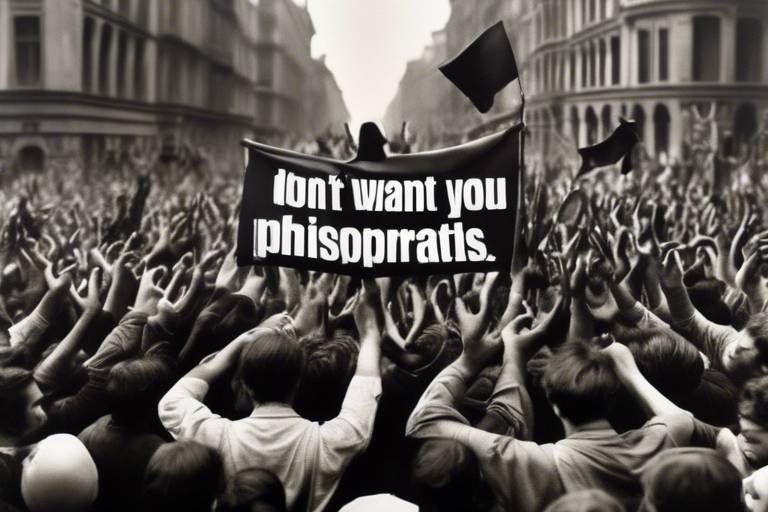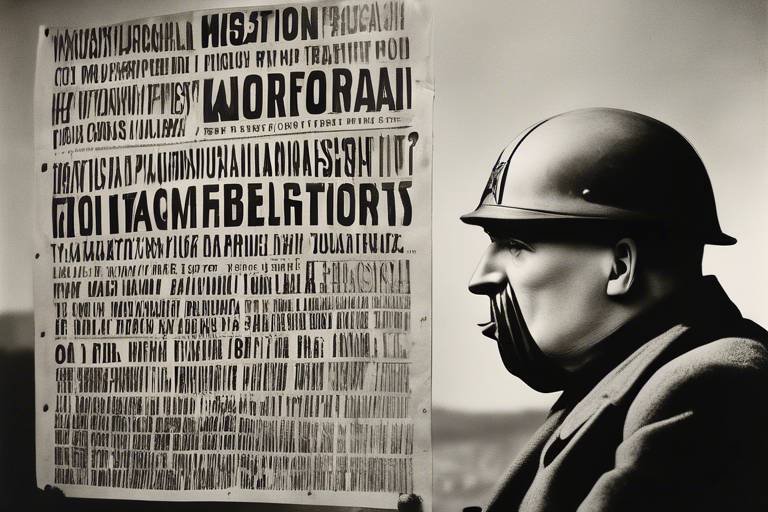Evaluating Martin Luther King Jr.'s Political Philosophy
When we think about the giants of social justice, Martin Luther King Jr. stands tall among them, not just for his eloquence but for the profound depth of his political philosophy. His ideas were not merely a reaction to the injustices of his time; they were a carefully constructed framework aimed at achieving a more equitable society. In this article, we will explore the fundamental aspects of King's political philosophy, examining the principles that guided his activism, the influences that shaped his thinking, and the lasting impact of his ideas on civil rights and social justice movements. So, what makes King's philosophy so compelling? It’s a blend of nonviolence, love, and a relentless pursuit of justice that resonates even today.
At the heart of King's political philosophy lies a commitment to nonviolence as a means of enacting change. He believed that love should be the guiding principle in the struggle for justice. This was not a passive kind of love; it was an active force that sought to transform society. King argued that love is the only weapon capable of defeating hate. His philosophy was also deeply rooted in the idea of justice, which he viewed as a moral imperative. Justice, for King, meant ensuring that every individual, regardless of race or background, had equal rights and opportunities. This tripartite foundation—nonviolence, love, and justice—was not just theoretical; it was the bedrock upon which he built his activism.
One cannot discuss King's philosophy without acknowledging the profound impact of Mahatma Gandhi. Gandhi's teachings on nonviolent resistance served as a guiding light for King. He adopted Gandhi's principles, believing that nonviolent resistance was not only a strategy but a way of life. King recognized that violence would only breed more violence, creating a cycle of hatred that would be difficult to break. Instead, he advocated for a form of resistance that was rooted in love and forgiveness, allowing for the possibility of reconciliation even in the face of deep-seated injustice. This approach became a cornerstone of his activism, as he mobilized communities to stand against oppression without resorting to violence.
The principles of nonviolent resistance that King embraced were revolutionary. He believed that through peaceful protests, sit-ins, and boycotts, marginalized communities could challenge systemic oppression effectively. This method not only drew attention to the injustices faced by African Americans but also garnered sympathy from those outside the movement. For King, nonviolence was a way to appeal to the conscience of the oppressor, creating a situation where they could no longer ignore the plight of the oppressed. It was about shifting the narrative and inviting everyone to the table of justice.
The Birmingham Campaign of 1963 exemplified King's nonviolent strategies in action. Faced with severe racial segregation and injustice, King and his fellow activists organized a series of protests aimed at bringing national attention to the issue. The campaign was met with violent opposition, yet King remained steadfast in his commitment to nonviolence. His famous letter from Birmingham Jail articulated the urgency of the struggle and the moral responsibility to act against injustice. This campaign not only highlighted the brutality of segregation but also galvanized support for the civil rights movement across the nation.
Another landmark event that showcased King's philosophy was the March on Washington in 1963. This massive demonstration, where King delivered his iconic "I Have a Dream" speech, brought together over 250,000 people advocating for civil and economic rights. King's vision of a society where individuals are judged by the content of their character rather than the color of their skin resonated deeply with the crowd. The march became a pivotal moment in the civil rights movement, demonstrating the power of collective action rooted in nonviolence and love.
King's political ideology was also profoundly influenced by his Christian beliefs. He viewed the struggle for justice as a moral imperative, one that was deeply intertwined with his faith. King often drew upon biblical teachings to inspire his activism, emphasizing the importance of love, compassion, and forgiveness. For him, the fight for civil rights was not just a social cause; it was a spiritual mission. This ethical framework provided a strong foundation for his philosophy, urging others to join the fight for justice not just as a political obligation, but as a divine calling.
The enduring legacy of Martin Luther King Jr.'s political philosophy is evident in contemporary social movements. His principles continue to inspire activists who are fighting against systemic racism and inequality today. King's belief in the power of nonviolence has been adopted by various movements around the globe, proving that his ideas transcend time and geography. As we navigate the complexities of modern social justice issues, King's philosophy serves as a guiding light, reminding us that love and justice can prevail over hate and oppression.
Current civil rights movements, such as Black Lives Matter, echo King's principles. Activists today draw upon his legacy to advocate for systemic change, emphasizing nonviolent protest as a means to address racial injustice. The connection between King's philosophy and modern movements illustrates the relevance of his ideas in today's struggle for equality and justice.
King's impact is not limited to the United States; his philosophy has resonated with global movements for justice and freedom. Leaders and activists worldwide have looked to King as a source of inspiration, adopting his principles of nonviolence to challenge oppressive regimes. From South Africa to India, King's teachings have fueled the fight for human rights, illustrating the universal appeal of his message.
- What is the main idea of Martin Luther King Jr.'s political philosophy?
King's philosophy centers around nonviolence, love, and justice as essential principles for achieving social change.
- How did Gandhi influence Martin Luther King Jr.?
Gandhi's teachings on nonviolent resistance profoundly shaped King's approach to civil rights activism.
- What was the significance of the Birmingham Campaign?
The Birmingham Campaign highlighted the brutal realities of segregation and showcased the effectiveness of nonviolent protest.
- How does King's philosophy relate to modern civil rights movements?
King's principles continue to inspire contemporary activists in their fight against systemic racism and inequality.
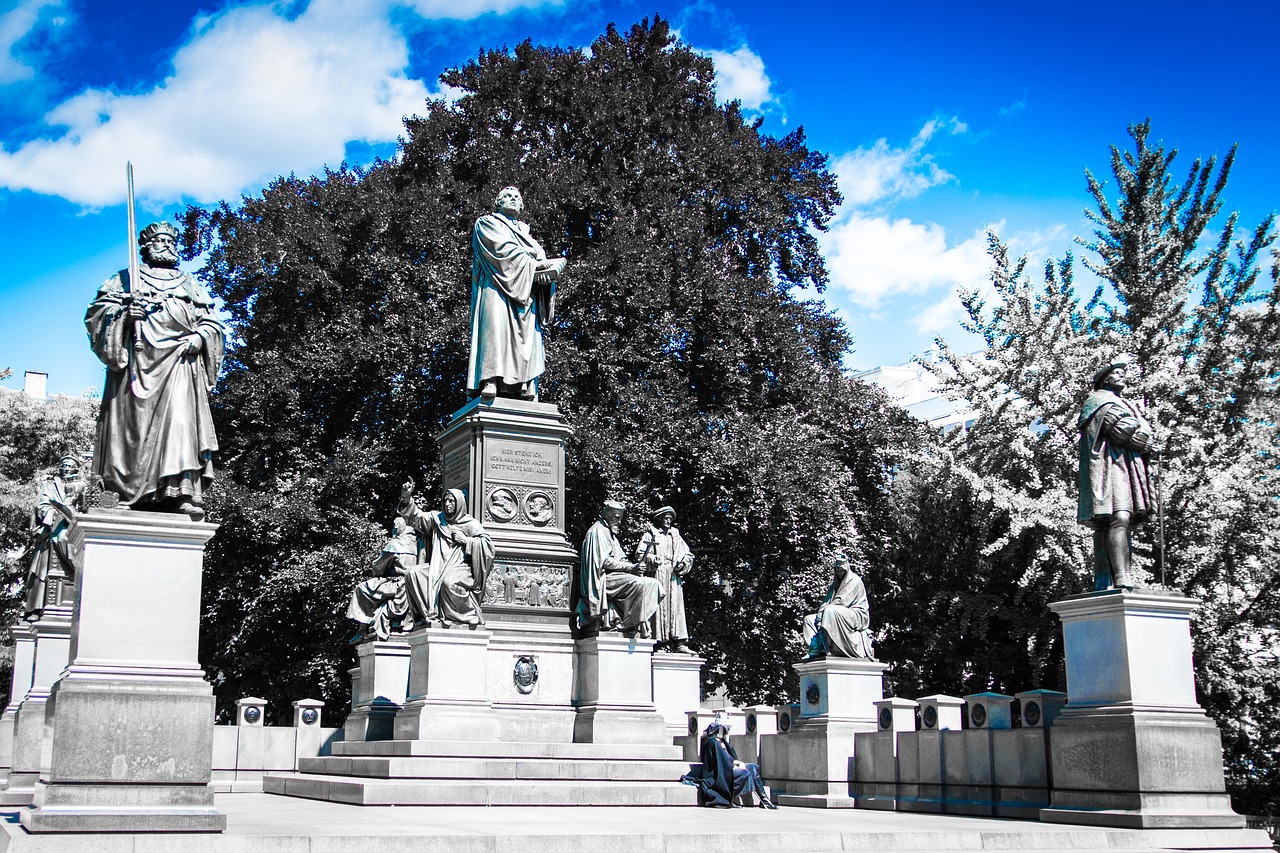
The Foundations of King's Philosophy
Martin Luther King Jr.'s political philosophy is a rich tapestry woven from various threads of thought, experience, and moral conviction. At its core, King's philosophy is anchored in the principles of nonviolence, love, and justice. These tenets not only shaped his activism but also provided a framework for understanding the struggle for civil rights in America. King believed that the fight against racial injustice was not merely a political battle but a profound moral challenge that required a deep commitment to ethical principles.
One of the most striking aspects of King's philosophy is his unwavering commitment to nonviolence. This principle was not just a strategy but a way of life for King. He understood that resorting to violence would only perpetuate a cycle of hatred and retaliation. Instead, he advocated for peaceful protests and civil disobedience as means to confront systemic oppression. This approach was deeply influenced by his Christian beliefs and the teachings of Mahatma Gandhi, who emphasized the power of nonviolent resistance. King famously stated, "Nonviolence is a powerful and just weapon," illustrating his belief that love and understanding could overcome hate and division.
Another foundational element of King's philosophy is the concept of love. For King, love was not a passive sentiment but an active force for change. He often referred to the idea of "agape," a selfless, unconditional love that seeks the well-being of others. This love was directed not only towards allies but also towards adversaries, as King believed that true transformation could only occur when individuals recognized their shared humanity. In his "Letter from Birmingham Jail," King eloquently expressed that "injustice anywhere is a threat to justice everywhere," emphasizing the interconnectedness of all people and the moral obligation to fight against oppression.
Justice, as envisioned by King, was not merely about legal equality but encompassed social and economic dimensions as well. He argued that true justice required addressing the root causes of inequality, including poverty, discrimination, and systemic racism. In his famous "I Have a Dream" speech, King articulated a vision of a society where individuals would be judged not by the color of their skin but by the content of their character. This vision of justice was inclusive and sought to empower the marginalized, ensuring that every individual had the opportunity to thrive.
In summary, the foundations of Martin Luther King Jr.'s political philosophy are deeply intertwined with his beliefs in nonviolence, love, and justice. These principles not only guided his actions but also inspired a generation of activists to pursue a path of peaceful resistance and social change. King's philosophy remains relevant today, serving as a reminder of the power of compassion and the enduring struggle for a just society.

The Influence of Gandhi
When we think about the profound impact of Martin Luther King Jr.'s political philosophy, it’s impossible to overlook the monumental influence of Mahatma Gandhi. King, a man driven by a vision of equality and justice, found in Gandhi's teachings a beacon of hope and a powerful methodology for enacting change. Gandhi's principles of nonviolent resistance not only resonated with King but also became the bedrock of his own activism. It’s like finding a missing puzzle piece that completes a beautiful picture of social justice.
Gandhi's approach was rooted in the idea that love and nonviolence could dismantle even the most oppressive systems. King adopted these principles, believing that hatred could not drive out hatred; only love could do that. This philosophy was not just theoretical for King; it was a practical strategy. By embracing nonviolence, he aimed to awaken the conscience of the oppressor while mobilizing the oppressed. It’s akin to planting seeds of hope in barren soil, nurturing them with compassion until they bloom into a powerful movement for change.
One of the most significant aspects of Gandhi's influence on King was the concept of satyagraha, or "truth force." This principle emphasized the power of truth and moral integrity in the struggle against injustice. King believed that by adhering to this philosophy, activists could maintain their dignity and moral high ground, even in the face of brutality. This is where the magic happens: nonviolent resistance not only challenges the status quo but also transforms the hearts and minds of those involved. King often reflected on how Gandhi's teachings provided him with the courage to face adversities without resorting to violence. It was a radical approach, one that required immense strength and unwavering faith.
As King delved deeper into Gandhi's teachings, he began to articulate a vision of civil rights that was distinctly tied to nonviolent resistance. He recognized that this method was not just a strategy but a way of life that demanded discipline, love, and a profound commitment to justice. King’s philosophy of nonviolence can be summarized in a few key principles:
- Active Resistance: Engaging in protests and demonstrations that challenge injustice without resorting to violence.
- Community Mobilization: Uniting individuals to collectively stand against oppression, fostering a sense of solidarity.
- Moral High Ground: Maintaining ethical standards even when faced with aggression, thus highlighting the unjust nature of the oppressor's actions.
This approach was vividly illustrated during the Birmingham Campaign, where King and his followers faced fierce opposition yet remained steadfast in their commitment to nonviolence. The images of peaceful protesters being met with brutality were broadcast across the nation, stirring the conscience of millions and galvanizing support for the civil rights movement. King’s ability to articulate the power of nonviolence in such dire circumstances demonstrated the effectiveness of Gandhi’s teachings in action.
In conclusion, Gandhi's influence on Martin Luther King Jr. was monumental, shaping not only his methods but also his vision of a just society. King took Gandhi's principles and adapted them to the American context, proving that love and nonviolence could indeed be powerful weapons against hatred and oppression. This legacy continues to inspire movements around the world, reminding us that the path to justice is paved with compassion and unwavering resolve.
- How did Gandhi's philosophy influence Martin Luther King Jr.'s activism?
Gandhi's philosophy of nonviolent resistance and love as a means to combat oppression deeply influenced King's methods and strategies in the civil rights movement.
- What is satyagraha?
Satyagraha, or "truth force," is a principle developed by Gandhi that emphasizes the power of truth and moral integrity in the struggle for justice, which King adopted in his activism.
- Why is nonviolence important in social movements?
Nonviolence maintains moral high ground, fosters community solidarity, and can effectively challenge oppressive systems without perpetuating cycles of violence.
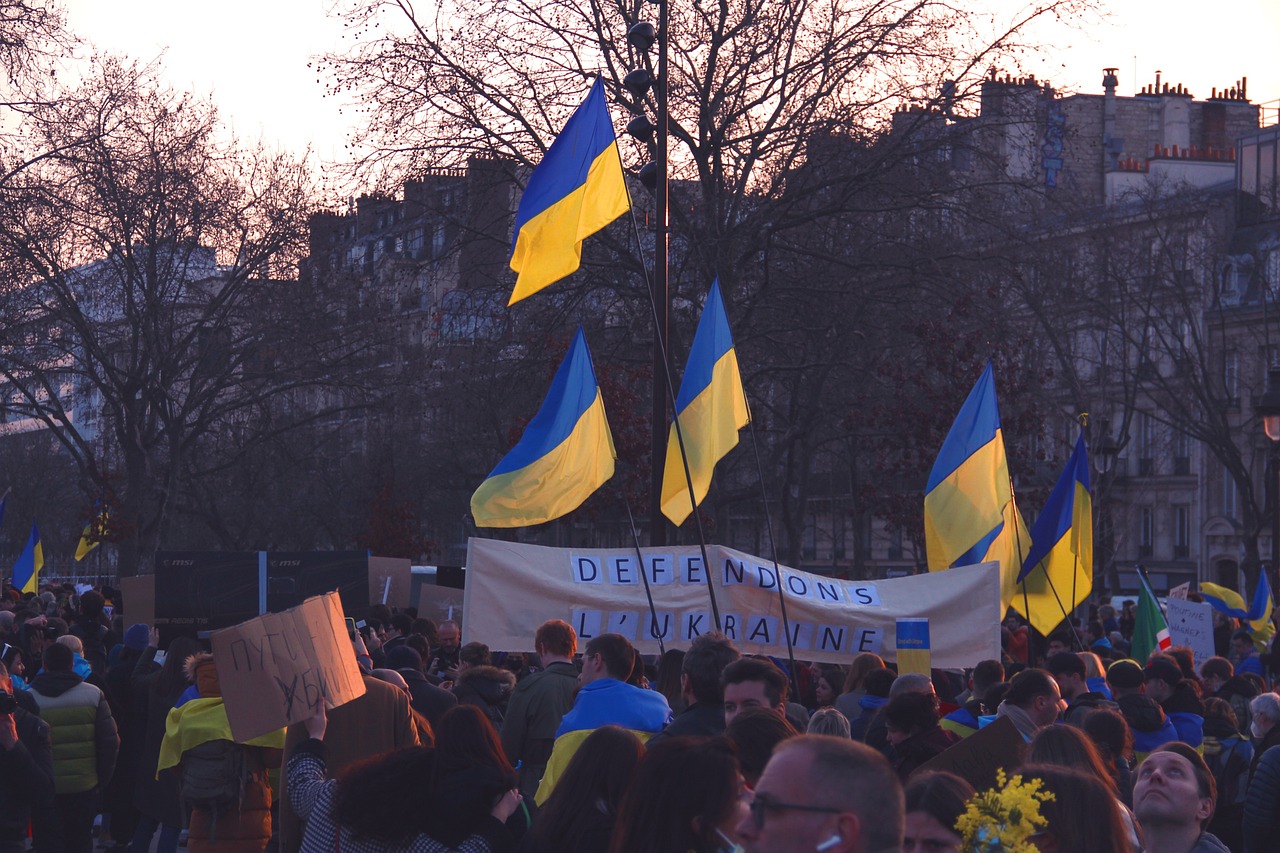
Nonviolent Resistance
Nonviolent resistance is not just a strategy; it’s a profound philosophy that resonates with the very core of humanity. For Martin Luther King Jr., it was a way to confront oppression without perpetuating the cycle of violence. Imagine standing firm against a tidal wave of injustice, yet choosing to remain unyielding and peaceful. This approach was not born out of weakness but rather a deep-seated strength that King embodied. He believed that nonviolence was the most potent weapon available to oppressed people in their struggle for freedom and dignity. This philosophy stemmed from his deep understanding of human nature and the belief that love could conquer hate.
King's commitment to nonviolent resistance was heavily influenced by the teachings of Mahatma Gandhi. Gandhi's success in India demonstrated that nonviolent methods could achieve monumental change, and King saw this as a blueprint for the civil rights movement in America. He famously stated, "Nonviolence is a powerful and just weapon," emphasizing its effectiveness in challenging systemic oppression. Through peaceful protests, sit-ins, and marches, King and his followers brought national attention to the injustices faced by African Americans, mobilizing communities and garnering support from diverse groups.
The effectiveness of nonviolent resistance lies in its ability to appeal to the conscience of the oppressor. By refusing to respond to violence with violence, King aimed to create a moral high ground that would force society to confront its own injustices. This approach not only galvanized support among those who witnessed the brutality faced by peaceful protesters but also inspired a sense of solidarity among those fighting for justice. It was a call to action that transcended racial and socio-economic boundaries, uniting people in a common cause.
One of the most significant examples of King's nonviolent resistance was the Birmingham Campaign in 1963. During this campaign, King and other civil rights leaders organized peaceful protests against racial segregation in Birmingham, Alabama. Despite facing violent opposition from authorities, the protesters remained committed to nonviolence, demonstrating their unwavering resolve. The images of peaceful demonstrators being met with fire hoses and police dogs shocked the nation and drew widespread support for the civil rights movement.
In addition to the Birmingham Campaign, the March on Washington for Jobs and Freedom in 1963 showcased the power of nonviolent resistance. With over 250,000 participants, it became one of the largest demonstrations for civil rights in U.S. history. King's iconic "I Have a Dream" speech delivered during this march encapsulated the essence of his vision for a just society. The event highlighted how nonviolent resistance could mobilize thousands and amplify the call for equality and justice.
Ultimately, King's philosophy of nonviolent resistance was not just a tactic; it was a way of life. It required immense discipline, courage, and a belief in the inherent goodness of humanity. By choosing nonviolence, King sought to create a world where justice could flourish, and love could triumph over hate. His legacy continues to inspire countless movements around the globe, proving that the principles of nonviolent resistance are timeless and universally applicable.
- What is nonviolent resistance? Nonviolent resistance is a method of protest that seeks to achieve social or political change without the use of violence.
- How did Martin Luther King Jr. apply nonviolent resistance? King applied nonviolent resistance through peaceful protests, marches, and civil disobedience, emphasizing love and justice.
- Why is nonviolent resistance effective? It appeals to the moral conscience of oppressors and garners support from a broader audience by highlighting injustices without resorting to violence.
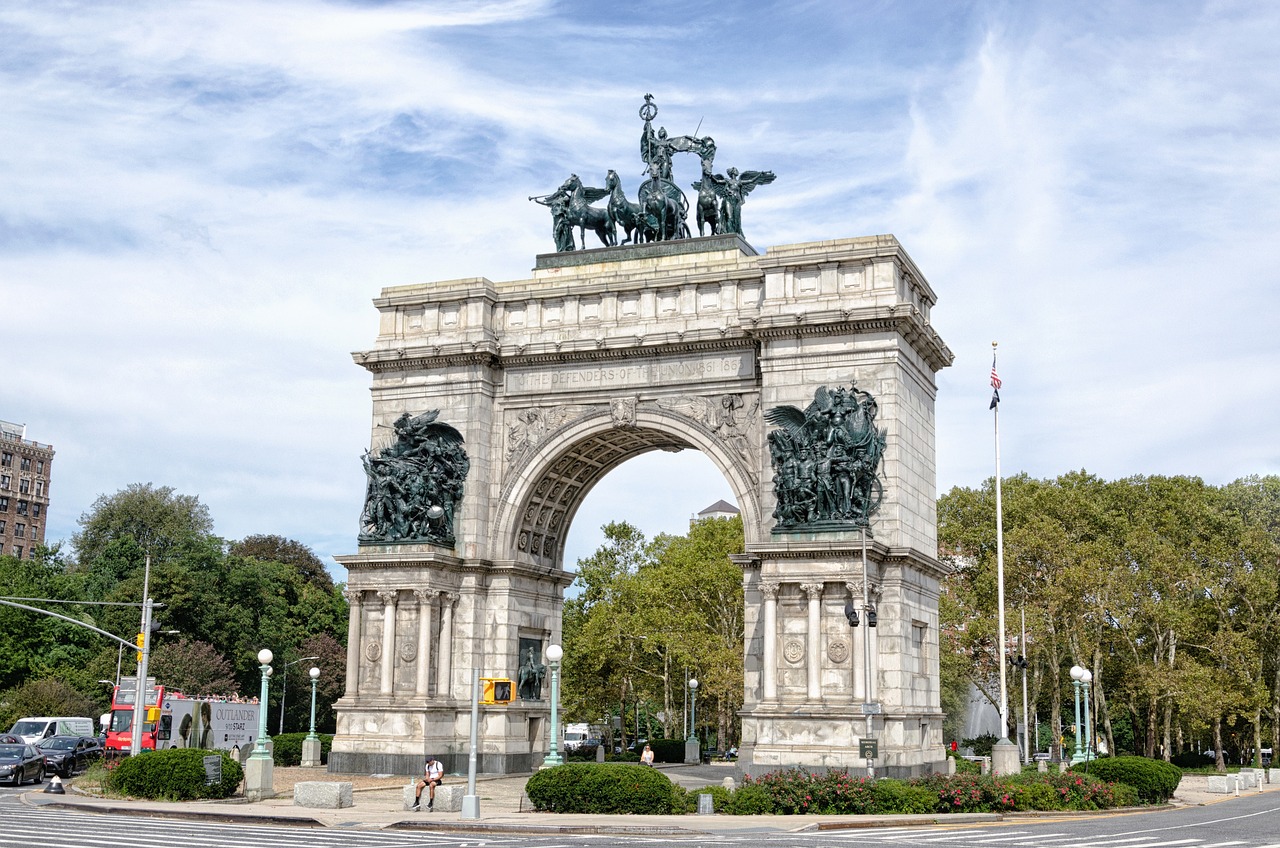
The Birmingham Campaign
The Birmingham Campaign of 1963 stands as one of the most pivotal moments in the American civil rights movement, showcasing the power of nonviolent protest as championed by Martin Luther King Jr.. Birmingham, Alabama, was notorious for its harsh segregation laws and rampant racial discrimination, making it a focal point for activists seeking to challenge the status quo. King, along with other civil rights leaders, recognized that this city was a microcosm of the broader struggle for racial equality in the United States. The campaign aimed not just to highlight the injustices faced by African Americans but also to mobilize public opinion and provoke a national response to the systemic oppression that permeated the South.
King's strategy for the Birmingham Campaign was rooted in his belief in nonviolent resistance. He understood that violence would only perpetuate the cycle of hatred and retaliation, so he opted for peaceful protests, sit-ins, and marches. These tactics were designed to draw attention to the injustices of segregation while maintaining the moral high ground. One of the most significant events during this campaign was the series of coordinated marches and demonstrations that took place in April and May of 1963. Activists faced brutal responses from law enforcement, including fire hoses and police dogs, which were captured on television and broadcast across the nation, shocking the public and garnering widespread sympathy for the civil rights cause.
The Birmingham Campaign was not merely a local effort; it was a strategic move designed to create a ripple effect throughout the country. By drawing national attention to the violent repression faced by peaceful protesters, King aimed to pressure the federal government to take action against segregation. The campaign culminated in the Children's Crusade, where hundreds of schoolchildren marched in protest, a move that highlighted the innocence and bravery of young activists. Their arrests and the subsequent media coverage stirred outrage and empathy, further amplifying the urgency of the civil rights movement.
As a result of the Birmingham Campaign, significant changes began to unfold. The protests led to negotiations with city officials, resulting in a promise to desegregate public facilities. However, the campaign's impact extended beyond Birmingham; it served as a catalyst for the March on Washington later that year, where King delivered his iconic "I Have a Dream" speech. This campaign was a testament to the effectiveness of nonviolent resistance and solidified King's role as a leading figure in the fight for civil rights.
In summary, the Birmingham Campaign exemplified how strategic nonviolent action could confront systemic injustice. It showcased the resilience of the African American community and the power of collective action, leaving an indelible mark on the civil rights movement and American history as a whole.
- What was the Birmingham Campaign?
The Birmingham Campaign was a series of nonviolent protests led by Martin Luther King Jr. and other civil rights activists in 1963 aimed at ending racial segregation in Birmingham, Alabama. - Why was Birmingham chosen for the campaign?
Birmingham was selected due to its harsh segregation laws and the violent response from law enforcement, making it a critical battleground for civil rights. - What tactics were used during the Birmingham Campaign?
The campaign employed nonviolent tactics such as sit-ins, marches, and demonstrations to draw attention to racial injustices. - What was the outcome of the Birmingham Campaign?
The campaign resulted in negotiations for desegregation of public facilities and set the stage for the March on Washington.
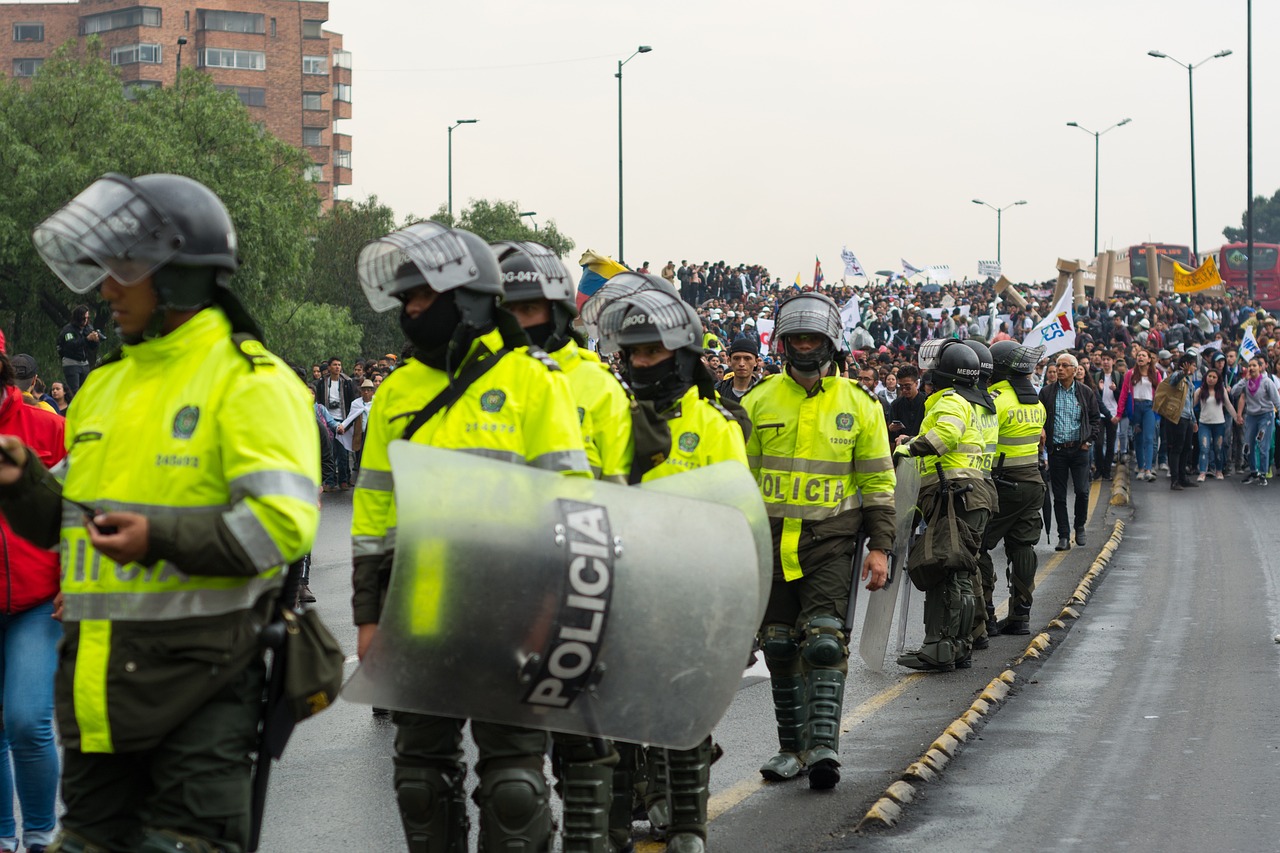
The March on Washington
The March on Washington for Jobs and Freedom, held on August 28, 1963, stands as a pivotal moment in the American civil rights movement, a day when over 250,000 people gathered to demand equality and justice. This monumental event was not just a protest; it was a powerful demonstration of unity and purpose, showcasing the collective strength of a diverse coalition fighting for civil rights. Martin Luther King Jr.'s iconic "I Have a Dream" speech delivered at this march resonated deeply, capturing the aspirations of millions and solidifying his role as a leader in the struggle for justice.
King's philosophy of nonviolence was on full display during the march, emphasizing peaceful protest as a means to achieve social change. The event was meticulously organized by a coalition of civil rights leaders, labor unions, and religious groups, reflecting King's belief in the importance of solidarity across different sectors of society. By bringing together people from various backgrounds, the march illustrated that the fight for civil rights was not just a black issue; it was a human issue that required the support of all Americans.
One of the most striking aspects of the March on Washington was its inclusivity. Participants included African Americans, whites, Latinos, and people of all faiths, united under a common cause. The event featured a series of speeches and performances that highlighted the struggle for civil rights, economic justice, and fair employment. The message was clear: inequality and injustice could no longer be tolerated. King’s speech, in particular, called for an end to racism and economic disparity, urging the nation to live up to its founding ideals of freedom and equality.
In the aftermath of the march, the impact was palpable. It not only raised awareness about the struggles faced by African Americans but also pressured lawmakers to take action. Just a year later, the Civil Rights Act of 1964 was passed, marking a significant step towards dismantling institutionalized discrimination. The March on Washington demonstrated the power of collective action and nonviolent resistance, serving as a blueprint for future movements advocating for justice and equality.
In essence, the March on Washington was more than just a protest; it was a clarion call for change. It exemplified how Martin Luther King Jr.'s philosophy could mobilize communities and inspire a nation to confront its deepest injustices. The echoes of that day continue to resonate, reminding us that the struggle for civil rights is ongoing and that we must remain vigilant in our pursuit of justice.
- What was the purpose of the March on Washington?
The march aimed to advocate for civil and economic rights for African Americans, highlighting issues such as job discrimination and racial injustice. - How many people attended the March on Washington?
Over 250,000 people participated in the march, making it one of the largest rallies for human rights in United States history. - What was the significance of Martin Luther King Jr.'s speech?
His "I Have a Dream" speech articulated the aspirations of the civil rights movement and called for an end to racism and economic inequality. - What impact did the march have on civil rights legislation?
The march helped galvanize public opinion and political pressure, contributing to the passage of the Civil Rights Act of 1964.

Christian Ethics in King's Philosophy
Martin Luther King Jr. was not just a civil rights leader; he was a man deeply rooted in his Christian faith. His political philosophy was profoundly influenced by his beliefs, which emphasized the moral imperative to pursue justice and equality. King viewed his activism as an extension of his religious convictions, believing that the struggle for civil rights was not only a social issue but also a spiritual battle. This perspective allowed him to frame the fight against racial injustice as a moral obligation, urging others to join him in this righteous cause.
At the heart of King's philosophy was the concept of agape love, a selfless, unconditional love that he believed was essential for achieving true justice. He often quoted the Bible, emphasizing that love should be the guiding principle in every action. This idea is beautifully encapsulated in his famous quote: “Hate cannot drive out hate; only love can do that.” King’s approach to love was not about passivity; rather, it was an active force that compelled individuals to work towards the betterment of society. He believed that love could transform enemies into friends and heal the wounds of division.
King's Christian ethics also led him to advocate for nonviolence as a means of protest. He was inspired by the teachings of Jesus, who preached forgiveness and reconciliation. For King, the act of turning the other cheek was not a sign of weakness but a powerful statement against oppression. He argued that nonviolent resistance was the most effective way to combat injustice, as it maintained the moral high ground and appealed to the conscience of the oppressor. This principle was put to the test during various campaigns, where King and his followers faced brutal violence yet remained steadfast in their commitment to nonviolence.
Moreover, King’s philosophy was shaped by the belief that justice was an essential component of love. He often referenced the prophetic tradition in the Bible, which calls for social justice and the protection of the marginalized. King believed that a true Christian society must be built on the foundation of justice, where the rights of every individual are respected and upheld. This idea is reflected in his famous "Letter from Birmingham Jail," where he articulated the need for direct action against unjust laws. He argued that individuals have a moral duty to disobey laws that perpetuate inequality, viewing this as an expression of their faith.
King's Christian ethics also extended to his vision of community. He believed that a just society could only be achieved through collective action, where individuals come together to support one another in the pursuit of equality. His emphasis on community is evident in the way he organized mass protests and encouraged grassroots involvement. He understood that the fight for civil rights was not solely an individual struggle but a shared journey towards liberation.
In summary, Martin Luther King Jr.'s political philosophy was deeply intertwined with his Christian ethics. His commitment to love, nonviolence, and justice shaped his approach to activism and inspired countless individuals to join the fight for civil rights. By grounding his philosophy in his faith, King was able to articulate a vision of a better world—one where love conquers hate and justice prevails over oppression.
- What was the role of Christianity in Martin Luther King Jr.'s activism?
Christianity played a crucial role in King's activism, providing him with the moral framework to advocate for justice and equality. His beliefs in agape love and nonviolence were central to his approach.
- How did King's Christian beliefs influence his views on nonviolence?
King's Christian beliefs led him to adopt nonviolence as a means of protest, inspired by the teachings of Jesus that emphasized forgiveness and reconciliation.
- What is agape love, and why was it important to King?
Agape love is a selfless, unconditional love that King believed was essential for achieving justice. He viewed love as a powerful force that could transform society and heal divisions.

Legacy and Impact
Martin Luther King Jr.'s political philosophy has left an indelible mark on the landscape of civil rights and social justice movements, both in the United States and around the world. His principles of nonviolence, love, and justice resonate deeply, inspiring generations of activists to pursue change through peaceful means. King's legacy is not merely a chapter in history; it is a living, breathing testament to the power of moral courage and the relentless pursuit of equality. His vision of a just society continues to guide contemporary movements, reminding us that the struggle for justice is far from over.
One of the most profound aspects of King's legacy is his ability to mobilize people from all walks of life. Through his speeches and actions, he created a sense of urgency and purpose that transcended racial and socio-economic boundaries. The impact of his work can be seen in various modern civil rights movements, where activists draw inspiration from his teachings. For instance, movements addressing issues like police brutality, immigration reform, and LGBTQ+ rights often echo King's call for justice and equality. It’s as if his spirit lives on in the hearts of those who continue to fight for a more equitable world.
Moreover, King's philosophy has not only influenced domestic movements but has also resonated globally. His approach to nonviolent resistance has inspired leaders and activists across continents, from the anti-apartheid struggle in South Africa to the pro-democracy movements in various countries. The universality of his message is a powerful reminder that the fight for justice knows no borders. As we reflect on his legacy, it becomes clear that King's vision is a beacon of hope for those who dare to dream of a better world.
To better understand the breadth of King's impact, consider the following table that outlines key areas influenced by his philosophy:
| Area of Impact | Description |
|---|---|
| Civil Rights Movement | King's leadership was pivotal in the fight against racial segregation and discrimination in the U.S. |
| Global Human Rights | His nonviolent approach inspired international movements advocating for human rights and freedom. |
| Modern Activism | Contemporary movements continue to utilize King's principles of nonviolence and justice. |
In conclusion, Martin Luther King Jr.'s legacy is a powerful reminder of the impact one individual can have on the world. His political philosophy not only transformed the civil rights movement but also laid the groundwork for ongoing struggles for justice and equality. As we navigate the complexities of today's social issues, we must remember King's teachings and strive to embody the principles he championed. After all, the fight for justice is not just a historical event; it is an ongoing journey that calls for our active participation.
- What was the main focus of Martin Luther King Jr.'s activism?
King primarily focused on achieving racial equality and justice through nonviolent means. - How did King's philosophy influence modern movements?
Many contemporary movements draw inspiration from King's principles of nonviolence and social justice, applying them to current issues like police violence and systemic racism. - What is the significance of the March on Washington?
The March on Washington was a pivotal event in the civil rights movement, showcasing the demand for jobs and freedom, and it featured King's iconic "I Have a Dream" speech.

Modern Civil Rights Movements
In the tapestry of social justice, the threads woven by Martin Luther King Jr. remain vibrant and essential. His philosophy of nonviolence and love as a means to achieve justice has not only shaped the civil rights movements of his time but continues to resonate in the struggles of today. From the Black Lives Matter movement to global campaigns advocating for LGBTQ+ rights, King's principles echo in the hearts of activists striving for equality. One might wonder, how do these modern movements reflect King’s teachings? The answer lies in their shared commitment to justice, community mobilization, and the unwavering belief that change is possible through peaceful means.
Take, for example, the Black Lives Matter movement, which emerged in response to systemic racism and police violence against Black individuals. This movement embodies King’s legacy by emphasizing nonviolent protest and community organizing as powerful tools for change. Just as King mobilized people during the Civil Rights Movement, modern activists harness social media to spread awareness and rally support, creating a digital landscape that amplifies their voices. It’s fascinating to see how technology has transformed activism, yet the core message remains the same: every life matters, and systemic injustice must be confronted head-on.
Moreover, many contemporary movements have adopted the intersectional approach that King himself began to embrace later in his life. Activists today recognize that issues of race, gender, sexuality, and economic inequality are intertwined. For instance, organizations like the Movement for Black Lives advocate not only for racial justice but also for the rights of women, LGBTQ+ individuals, and low-income communities. This holistic view mirrors King’s vision of a society where justice is inclusive and equitable for all, not just a select few.
Furthermore, King's influence can be seen globally, as movements across the world draw inspiration from his teachings. In countries facing oppression and inequality, leaders often reference King as a beacon of hope and a model for peaceful resistance. The power of his message transcends borders, proving that the quest for justice is a universal struggle. Whether it's through protests, advocacy, or grassroots organizing, the spirit of King’s philosophy lives on, igniting passion and purpose in those who dare to dream of a better world.
As we reflect on the modern civil rights movements, it’s essential to recognize that while the challenges may have evolved, the fundamental fight for justice remains the same. King’s legacy is not just a relic of the past; it is a living, breathing force that continues to inspire new generations of activists. The question we must ask ourselves is, how can we carry forward this legacy? By standing in solidarity, educating ourselves, and taking action, we can honor King’s vision and contribute to the ongoing struggle for equality.
- What is the main message of Martin Luther King Jr.'s philosophy? King's philosophy centers around nonviolence, love, and justice, advocating for peaceful resistance against oppression.
- How does the Black Lives Matter movement relate to King's teachings? The Black Lives Matter movement embodies King's principles by promoting nonviolent protest and community organizing to combat systemic racism.
- What is intersectionality in the context of modern civil rights movements? Intersectionality recognizes that various forms of discrimination are interconnected, and modern movements address multiple issues of inequality simultaneously.
- How can individuals contribute to the civil rights movement today? Individuals can contribute through education, advocacy, participating in peaceful protests, and supporting organizations that promote social justice.

Global Influence
Martin Luther King Jr.'s political philosophy didn't just resonate within the borders of the United States; it echoed across the globe, inspiring countless movements for justice and equality. His profound belief in nonviolence and social justice became a beacon of hope for oppressed people everywhere. In many ways, King served as a catalyst for a global awakening, encouraging individuals and groups to challenge their own injustices through peaceful means. Can you imagine the ripple effect of one man's ideals inspiring entire nations to rise against oppression?
One of the most significant impacts of King's philosophy was seen in the anti-apartheid movement in South Africa. Leaders like Nelson Mandela and Desmond Tutu drew inspiration from King's commitment to nonviolent resistance. They recognized that the struggle against racial injustice could be fought with dignity and love rather than violence. Mandela famously stated, "I learned that courage was not the absence of fear, but the triumph over it," a sentiment that aligns closely with King's teachings. This connection is a testament to how King's ideals transcended cultural and geographical barriers.
Furthermore, King's philosophy influenced numerous other global movements, such as:
- The Civil Rights Movement in the United States
- The Solidarity Movement in Poland
- The anti-colonial struggles in India and Africa
- The LGBTQ+ rights movement
Each of these movements embraced elements of King's vision, advocating for change through peaceful protests and civil disobedience. In India, for instance, Mahatma Gandhi's principles of nonviolent resistance were revitalized by King's teachings, demonstrating how interconnected these philosophies are. The idea that one could stand up against tyranny without resorting to violence is a powerful message that continues to resonate today.
Moreover, King's legacy is not just confined to historical contexts; it remains relevant in contemporary struggles. Activists around the world often invoke his name and teachings when advocating for various causes, from climate justice to racial equality. The Black Lives Matter movement, for example, embodies many of King's principles, as it seeks to address systemic racism and police brutality through peaceful protests and community engagement. The ongoing relevance of King's ideas underscores their universal appeal and adaptability to various social contexts.
In conclusion, Martin Luther King Jr.'s political philosophy has left an indelible mark on the global landscape. His commitment to nonviolence, justice, and equality has inspired generations of activists, proving that the fight for human rights knows no borders. As we navigate the complexities of modern society, we must remember that the essence of King's message—love, justice, and nonviolent resistance—remains as crucial today as it was during his time. The world continues to look to his example as a guide in the ongoing struggle for justice and equality.
- What was Martin Luther King Jr.'s main philosophy?
King's main philosophy centered around nonviolence, love, and the pursuit of justice, which he believed were essential in the fight for civil rights. - How did Gandhi influence Martin Luther King Jr.?
Gandhi's teachings on nonviolent resistance greatly influenced King's approach to civil rights activism, leading him to adopt peaceful methods in challenging oppression. - What is King's legacy today?
King's legacy continues to inspire modern civil rights movements, including Black Lives Matter, emphasizing the need for justice and equality worldwide.
Frequently Asked Questions
- What are the core principles of Martin Luther King Jr.'s political philosophy?
Martin Luther King Jr.'s political philosophy is built on several core principles, including nonviolence, love, and justice. These tenets guided his activism and shaped his vision for a more equitable society. King believed that through love and nonviolent resistance, people could challenge oppression and achieve social change.
- How did Mahatma Gandhi influence Martin Luther King Jr.?
Mahatma Gandhi's teachings had a profound impact on Martin Luther King Jr. King adopted the principles of nonviolent resistance from Gandhi, which became a cornerstone of his approach to civil rights. This influence helped King to mobilize communities and confront systemic oppression without resorting to violence.
- What was the significance of the Birmingham Campaign?
The Birmingham Campaign was a pivotal moment in the civil rights movement, showcasing King's nonviolent strategies in action. It highlighted the struggle against racial segregation and injustice in the American South, drawing national attention to the urgent need for change. King's leadership during this campaign exemplified his commitment to nonviolent protest.
- Why was the March on Washington important?
The March on Washington was one of the largest demonstrations for civil rights in U.S. history, where King delivered his iconic "I Have a Dream" speech. This event not only galvanized public support for civil rights legislation but also illustrated how King's philosophy inspired collective action towards achieving equality and justice.
- How did King's Christian beliefs shape his activism?
King's Christian ethics played a crucial role in his political ideology. He believed that fighting for justice and equality was a moral imperative rooted in his faith. This belief system reinforced his commitment to nonviolence and love, emphasizing that true change must come from a place of compassion and understanding.
- What is the legacy of Martin Luther King Jr.'s political philosophy today?
The legacy of Martin Luther King Jr. continues to resonate in modern civil rights movements. His principles inspire current activists who are fighting against systemic racism and inequality. King's philosophy serves as a guiding light for those seeking justice and social change in today's world.
- How has King's philosophy influenced global movements for justice?
Martin Luther King Jr.'s philosophy has had a significant global impact, resonating with movements for justice and freedom around the world. Leaders and activists in various countries have drawn inspiration from his teachings, using his principles of nonviolence and love as a foundation for their struggles against oppression.









